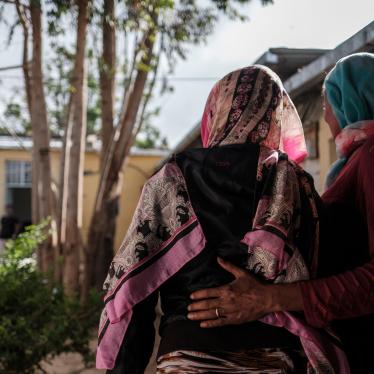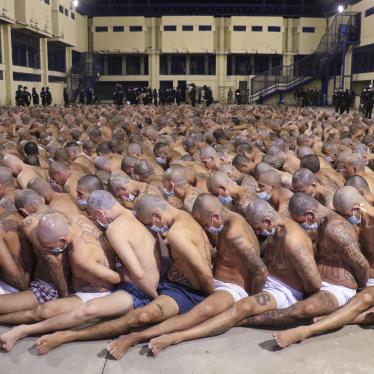The South African government is failing to adequately protect residents of commercial farming areas from violent crime, Human Rights Watch charged in a report released today. Black farm residents are most severely affected by this failure, and black women are most vulnerable of all, Human Rights Watch said.
The 230-page report, Unequal Protection: The State Response to Violent Crime on South African Farms, is being published in advance of next week’s United Nations conference on racism, to be held in Durban. It is based on research carried out by Human Rights Watch in rural areas of South Africa during 2000.
The state response to violent crime against white farm owners and managers could and should be improved, Human Rights Watch said, but black farm workers and their families have much more difficulty getting help from the criminal justice system.
“Attacks against farm owners have gotten most of the attention, but attacks against other farm residents are a much bigger problem,” said Bronwen Manby, deputy director of the Africa Division of Human Rights Watch and the main author of the report. “Farmworkers and other rural dwellers are more vulnerable to violence, including from their employers, and less likely to get help from the police and courts.”
In South Africa, where land ownership was restricted to whites for most of the twentieth century, most farm owners are still white, whereas farmworkers are mostly black. Since the early 1990s, there has been a marked increase in assaults and murders of the owners and managers of commercial farms and their families.
In response to calls from commercial farmers’ organizations for action against violent crime, the South African government has implemented a “rural protection plan” in commercial farming areas. Many farm owners do not believe the plan has been effective. But representatives of the state security forces still tend to give greater priority to crimes committed against farm owners than against their employees. This is the case even when the crimes committed are of equal seriousness. Women subjected to sexual violence are least likely of all to obtain a satisfactory response from the system.
In some areas, the heightened security measures of the rural protection plan have even increased insecurity for black farm residents, who are targeted for beatings and other harassment by over-zealous security agents. Private security companies hired by farm owners have also committed serious abuses.
The Human Rights Watch report highlighted abuses committed by regular and reserve members of the army and police and by private security companies in the Wakkerstroom area of Mpumalanga and the Ixopo area of KwaZulu-Natal.
Members of the Wakkerstroom commando, a reserve army unit, for example, are accused of carrying out assault, torture, forced and illegal evictions, and murder of farm residents. Many farmworkers and residents — it is impossible to say how many — are also subjected to physical abuse by their employers and their agents. This abuse can range from casual blows with fists for alleged mistakes in work or impertinence, to serious physical violence, including rape and murder.
“The rural protection plan needs a complete rethink,” said Manby. “Unless it becomes a broader response to the security concerns of all those living in commercial farming areas, it will continue to fail even those white farm owners who have caused it to be created.”
Human Rights Watch called on the South African government to implement a range of measures to ensure that it lived up to its obligations under international law to provide equal protection to all its citizens, black and white, men and women. In particular, it urged that:
The government must ensure that the criminal justice system responds effectively and promptly to any reported serious crime, without discrimination;
Only police should carry out policing duties, and not members of the army;
Both police and army should ensure proper disciplinary or prosecutorial action against those responsible for abuses; and
Private security initiatives, whether voluntary “farmwatch” groups or private security companies, should be brought under more effective control.








